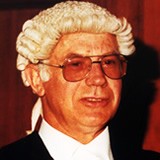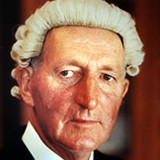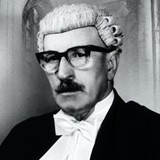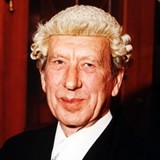BRADSHAW, Keith Oscar (1923–2017)
Clerk of the Senate, 1980–82
Like his predecessor Roy Bullock, Keith Bradshaw had a long and distinguished career in the Department of the Senate, assumed the office of Clerk at a relatively advanced age, and retired after approximately two years in office. Keith Oscar Bradshaw was born on 28 April 1923 in Broken Hill, New South Wales. He was the second child of Oscar Spelman Bradshaw, a railway car





